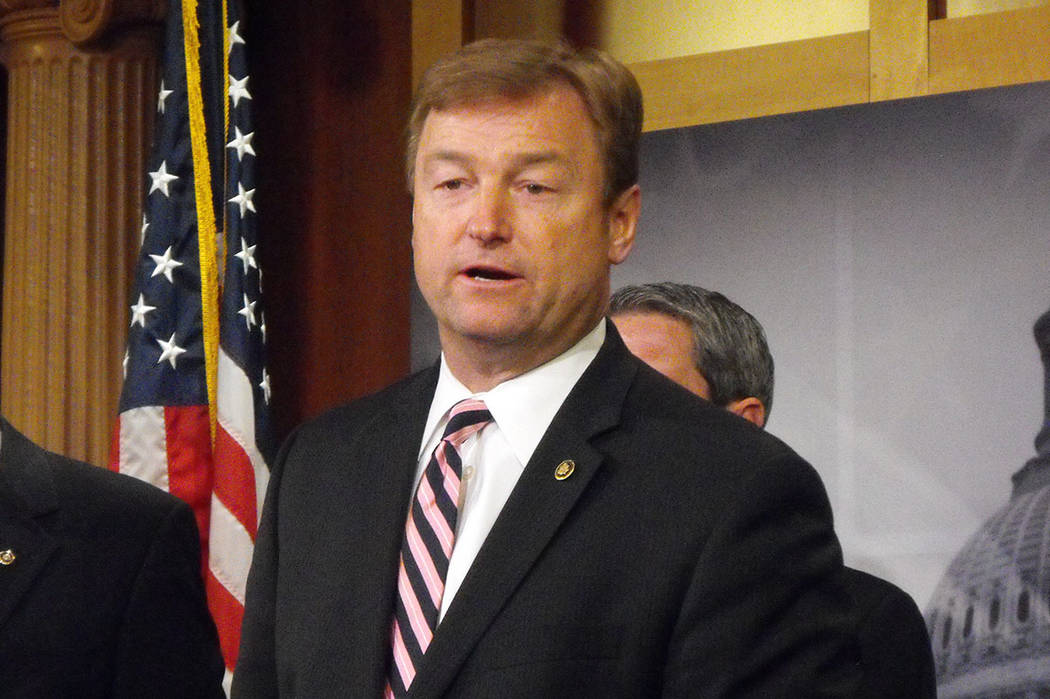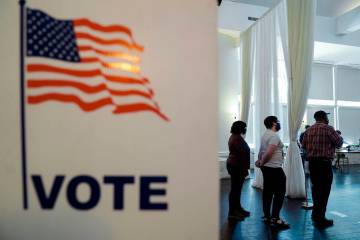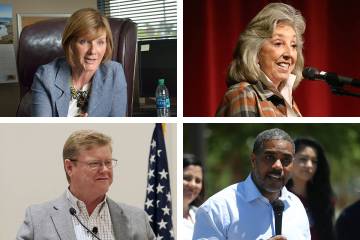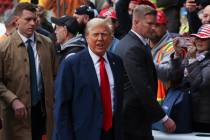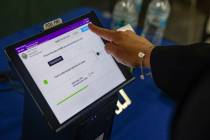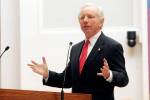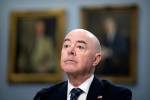Trump meets with GOP senators ahead of crucial votes on tax-reform
WASHINGTON — President Donald Trump met with key GOP senators at the White House on Monday ahead of a series of critical votes on a sweeping tax-reform bill that lacks sufficient Republican support.
Trump and Republican leaders continued to tweak the legislation in order to sway undecided GOP senators and notch an elusive legislative win if the bill goes to the Senate floor this week.
Trump met with members of the Senate Finance Committee at the White House on Monday, and planned to attend the GOP caucus luncheon on Capitol Hill on Tuesday in his push to get the bill through the upper chamber.
“It’s going to be tremendous tax cut — the biggest in the history of our country. You’ll have to pay a lot less tax,” Trump said at the White House following the meeting.
Democrats remain united in their opposition to the bill, calling it a giveaway to corporations and the most wealthy Americans at the expense of working families.
Progressive advocacy groups like Not One Penny and Priorities USA have launched advertising campaigns in Maine, Nevada, Alaska and Arizona to pressure GOP lawmakers to vote against the tax bill.
The House passed the bill along partly lines earlier this month, and Trump wants to sign the tax bill into law by the end of the year to provide a “big Christmas present” for American taxpayers.
The Congressional Budget Office released an updated analysis of the bill that showed the tax cuts would raise the budget debt by $1.4 trillion over 10 years.
Several Republican senators have raised concerns about the debt due to a tax-cut package that would permanently slash corporate rates from 35 percent to 20 percent, and provide new tax brackets for individuals and families to give them a temporary break until 2025.
Trump open to changes
Sen. Ron Johnson, R-Wis., said he was withholding support for the bill because it does more for corporations than smaller businesses, which he called the economic driver in this country.
But Johnson is seeking a compromise, and Trump signaled Monday he was open to changes in the Senate bill. Sen. Steve Daines, R-Mont., voiced similar concerns but spoke with Trump over the weekend.
In a social media message on Twitter, Trump said that “with just a few changes, some mathematical, the middle class and job producers can get even more in actual dollars and savings.”
The Tax Cut Bill is coming along very well, great support. With just a few changes, some mathematical, the middle class and job producers can get even more in actual dollars and savings and the pass through provision becomes simpler and really works well!
— Donald J. Trump (@realDonaldTrump) November 27, 2017
Other hurdles remain in the Republican caucus. Sen. Jeff Flake, R-Ariz., and Sen. Bob Corker, R-Tenn., both raised concerns that the tax cuts would irresponsibly saddle future generations with mountains of debt.
And independent groups that monitor the debt say it is doubtful that Congress will let individual tax cuts in the Senate bill expire in 2025.
“Does anyone really believe Congress will allow the individual tax cuts to sunset in eight years?” asked Maya MacGuineas, president of the Committee for a Responsible Federal Budget.
MacGuineas called the sunset provision “an obvious ruse to hide very real costs and make more room for debt-financed cuts and giveaways.”
Sen. James Lankford, R-Okla., suggested adding a mechanism that pushes the tax rates back up if projections on the increase to the debt soar past the mark.
With solid opposition from Democrats, Republicans are trying to pass the tax bill under special budget rules that require them to not increase the debt by more than $1.5 trillion over 10 years or face a possible filibuster.
Slim GOP margin
To pass the bill with a simple majority, Republicans, who hold a slim 52-48 majority, can afford to lose no more than two GOP lawmakers.
Sen. John McCain, R-Ariz., Sen. Susan Collins, R-Maine, and Sen. Lisa Murkowski, R-Alaska, defected on the GOP bill to repeal the Affordable Care Act, also known as Obamacare. None of those senators have divulged how they may vote on the tax bill, but all have said they have concerns.
Sen. Dean Heller, R-Nev., considered the most vulnerable Republican incumbent facing re-election in 2018, has embraced the GOP plan and was instrumental in tucking a provision into the legislation that would double the child tax credit.
Heller said he worked with the president’s daughter, Ivanka Trump, “to make it happen.”
The Nevada Republican also included language that would allow small businesses to award stock options to employees. He also worked to retain tax-exempt status of certain bonds, such as those being used to finance the Raiders football stadium in Las Vegas.
The House bill, passed without a single Democrat, would eliminate tax deductions for medical expenses, interest on student loans and would cap the amount of the mortgage interest deduction at $500,000. It also would eliminate the state and local property tax deduction on federal forms.
The Senate bill keeps intact those deductions, but includes a repeal of the individual mandate in the ACA, commonly known as Obamacare. The elimination of the mandate would defund subsidies to low-income families who purchase insurance on public exchanges.
The CBO said repeal of the individual mandate would cause premiums on public exchanges to rise by 10 percent.
The CBO also estimates the number of Americans covered by health insurance plans would decrease by 13 million over the next decade, if the mandate is eliminated.
Sen. Catherine Cortez Masto, D-Nev., said on Twitter that the GOP plan would “hurt rural Nevadans, potentially leaving them with no coverage options or facing plans with skyrocketing premiums.”
“We should be making health care more accessible and affordable in our rural communities, not less,” Cortez Masto said.
In addition, the CBO found that families with income under $75,000 a year would actually see a tax hike after 2025 when deductions allowed under the bill expire.
Contact Gary Martin at gmartin@reviewjournal.com or 202-662-7390. Follow @garymartindc on Twitter.





